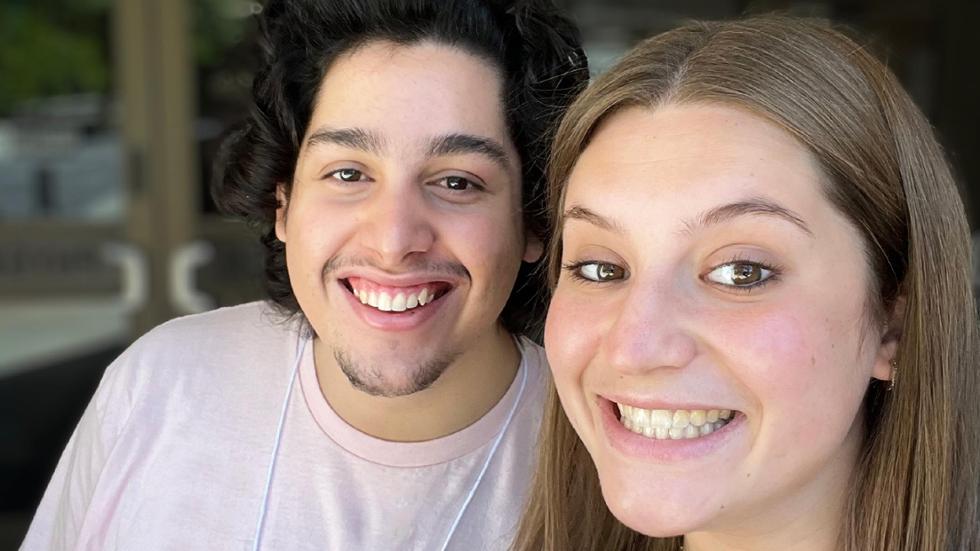
Sophie Rubenfeld ’23, a summer research participant at , initially struggled with this aspect of the research. But after speaking with Awildo Gutierrez ’23, a participant at Berkeley’s 's MSRI-UP Research Experience for Undergraduates summer program, something clicked. She began finding connections between examples, allowing her to create generalized propositions and write mathematical proofs. Her work began to feel like intentional research.
“I had never done research before, so that was a pretty exciting moment,” Rubenfeld said.
Before beginning their respective research experiences, Rubenfeld and Gutierrez participated in a week-long conference at the University of Utah called Building Relationships for an Inclusive and Diverse Group of Emerging Students (). The conference, intended for early graduate and advanced undergraduate students, gave participants the chance to learn about algebraic geometry through various lectures and problem sessions.
It was through the conference that Gutierrez and Rubenfeld developed their friendship, a testament to the lasting sense of community fostered at ┬щ╢╣╣·▓·AV.
“I was terrified going into the conference because I thought I’d be spending the week by myself,” Rubenfeld said. “But in the first lecture, I heard this voice I recognized from my math classes, and it was a major relief. We immediately started spending time together. We became good friends, and we’ve continued to help each other throughout our research experiences.”
Though Rubenfeld and Gutierrez researched vastly different topics, both projects involved interdisciplinary approaches. Gutierrez’s research focused on mathematical biology, which uses mathematical models to solve biological problems. Specifically, he looked at models of chemical reaction networks.
“There are these mathematical properties about the networks that translate really well to biological properties,” Gutierrez said. “If we can learn a lot about the models mathematically, then we can go back and learn about the chemical reactions.”
Rubenfeld’s research, on the other hand, used mathematics and computer science to characterize bond lattices, a special way of grouping numbers that can be found in nature. She used coding techniques learned at ┬щ╢╣╣·▓·AV to perform problems more efficiently. Though the research studied bond lattices in a purely mathematical sense, the findings could help inform why they are important and how and where they form in nature.
Awildo Gutierrez ’23
Major: Mathematics
Hometown: Brooklyn, N.Y.
High School: Bard High School Early College Queens
Sophie Rubenfeld ’23
Major: Mathematics
Hometown: Baltimore Md.
High School: Towson High School
Both Rubenfeld and Gutierrez plan to attend graduate school after ┬щ╢╣╣·▓·AV. These summer experiences not only helped build the necessary skills, but also reinforced the pair’s interest in continuing research.
“Math is something that if you’re interested in it, you’re never going to hit an end,” Rubenfeld said. “You’re always going to have questions, and after you ask one question, you’re going to think of 17 more. And at some point, you’ll find an answer that makes sense.”


